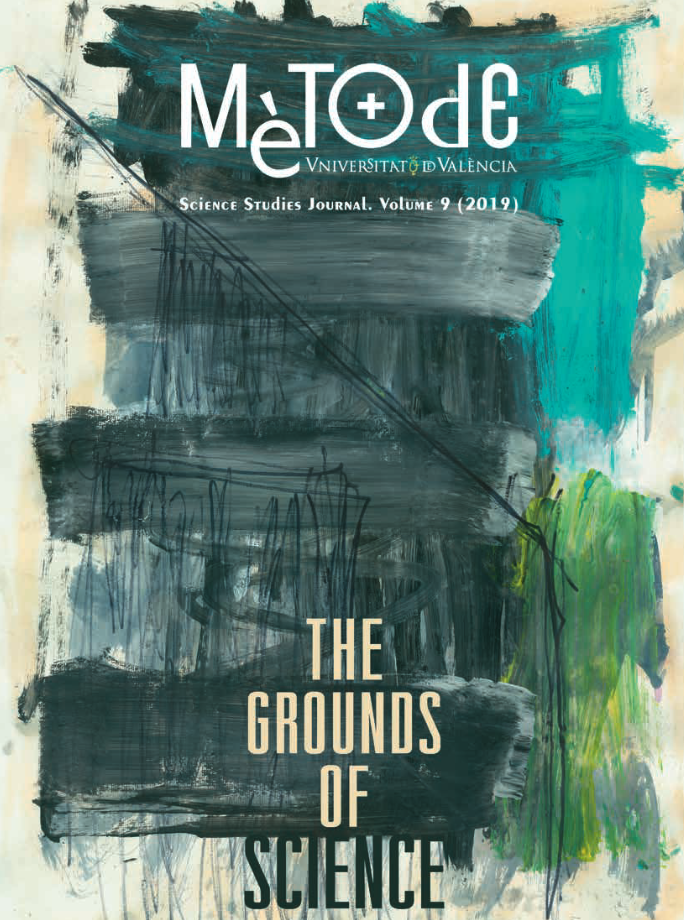Beyond the CSI effect: The keys to good forensic genetics communication
DOI:
https://doi.org/10.7203/metode.9.10628Keywords:
forensic genetics, DNA fingerprint, criminalistics, DNA, genetic polymorphism Abstract
Abstract
Forensic genetics brings together all the genetic knowledge required to solve specific legal problems. In recent decades new techniques have shown the potential of DNA as a profiling system. These advances have arrived hand in hand with other improvements in terms of communication of test results, with the introduction of statistical evaluation. In the collective imagination, nourished by TV series such as CSI, forensic evidence is presented as one hundred percent certain, but the reality is different. However, statistical analysis has allowed us to turn from handcrafted forensic medicine based on intuition and experience, to tests based on evidence and data, where uncertainty is quantified in probabilistic terms.
 Downloads
Downloads
 References
References
Carracedo, A, & Prieto, L. (2014). Valoración de la prueba genética. In M. Casado, & M. Guillén (Eds.), ADN forense: Problemas éticos y jurídicos (pp. 145–156). Barcelona: Observatori de Bioètica i Dret, Universitat de Barcelona.
EUROFORGEN. (2017). Making sense of forensic genetics. London: Sense about Science. EUROFORGEN. Retrieved from http://senseaboutscience.org/wp-content/uploads/2017/01/making-sense-of-forensic-genetics.pdf
Evett, I. W. (1995). Avoiding the transposed conditional. Science and Justice, 35(2), 127–131. doi: 10.1016/S1355-0306(95)72645-4
Jeffreys, A. J., Wilson, V., & Thein, S. L. (1985). Hypervariable minisatellite regions in human DNA. Nature, 314, 67–73. doi: 10.1038/314067a0
Kayser, M., & De Knijff, P. (2011). Improving human forensics through advances in genetics, genomics and molecular biology. Nature Reviews Genetics, 12(3), 179–192. doi: 10.1038/nrg2952
Ley Orgánica 10/2007, de 8 de octubre, reguladora de la base de datos policial sobre identificadores obtenidos a partir del ADN. (2007). Retrieved from https://www.boe.es/buscar/act.php?id=BOE-A-2007-17634
Phillips, C., Prieto, L., Fondevila, M., Salas, A., Gómez-Tato, A., Álvarez-Dios, J., … Lareu, M. V. (2009). Ancestry analysis in the 11-M Madrid bomb attack investigation. PLOS One, 4(8), e6583. doi: 10.1371/journal.pone.0006583
Real Decreto 1977/2008, de 28 de noviembre, por el que se regula la composición y funciones de la Comisión Nacional para el uso forense del ADN. (2008). Retrieved from https://www.boe.es/buscar/doc.php?id=BOE-A-2008-19992
The International Association for Identification. (2018). PCAST report – Forensic science in criminal courts: Ensuring scientific validity of feature-comparison methods. Retrieved from https://www.theiai.org/president/201609_PCAST_Forensic_Science_Report_FINAL.pdf
Downloads
Published
How to Cite
-
Abstract2272
-
PDF1132
Issue
Section
License
![]()
All the documents in the OJS platform are open access and property of their respective authors.
Authors publishing in the journal agree to the following terms:
- Authors keep the rights and guarantee Metode Science Studies Journal the right to be the first publication of the document, licensed under a Creative Commons Attribution-NonCommercial-NoDerivatives 4.0 International License that allows others to share the work with an acknowledgement of authorship and publication in the journal.
- Authors are allowed and encouraged to spread their work through electronic means using personal or institutional websites (institutional open archives, personal websites or professional and academic networks profiles) once the text has been published.





